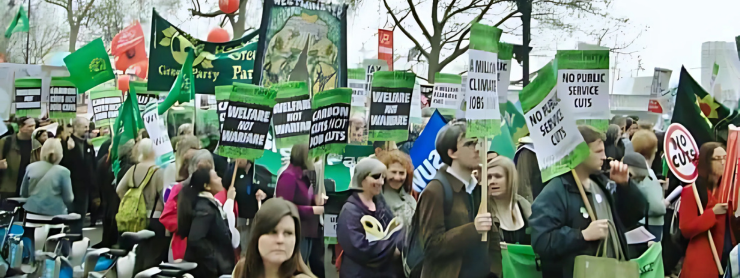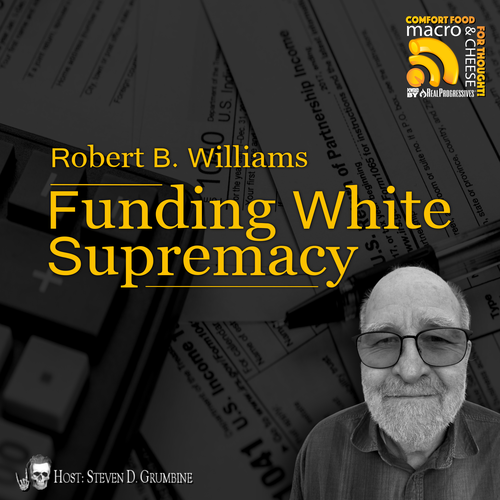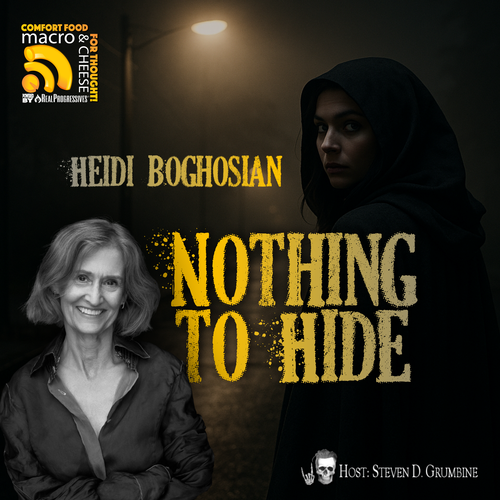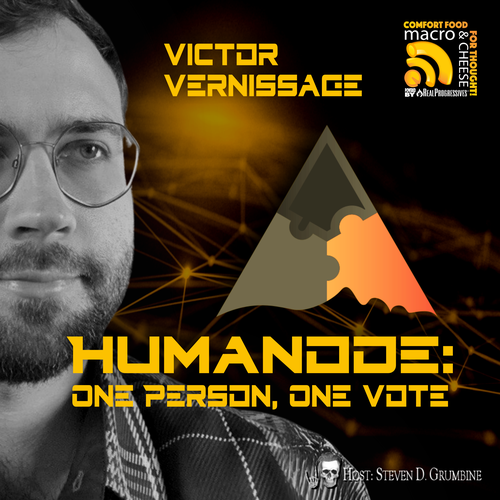Episode 144 – The Battle for America’s Schools with Rana Odeh
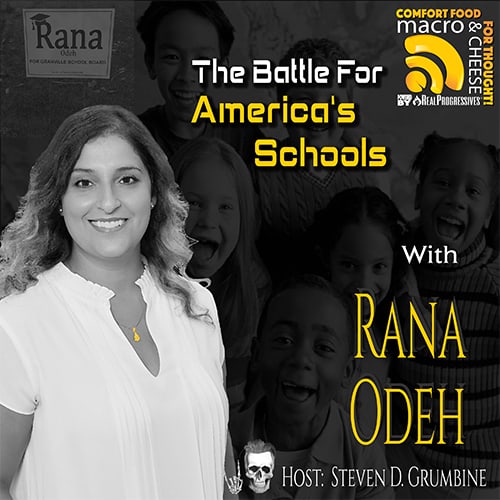
FOLLOW THE SHOW
Rana Odeh is Fadhel Kaboub’s wife, but that’s far from the most interesting thing about her. Rana is running for a seat on the school board in Granville, OH.
This week Steve investigates the cutthroat world of local school board elections. So, get ready to get down and dirty… Just kidding! His guest, Rana Odeh, is the genuine article: thoughtful, straight forward, and unafraid to bring up uncomfortable topics. At a time when the country’s political polarization seeps into every crevice of civic and social life, our school boards have become battlegrounds. Rana is willing to armor up and fight for our youth and their education.
Rana is running for a seat on the school board in Granville, OH, where she lives with her three kids and her husband, Fadhel Kaboub – a dear friend of this podcast. Anyone who follows Fadhel on Facebook has seen their beautiful family of fledgling artists, musicians, and young campaigners.
Steve and Rana talk about the lack of a federal right to education in the US and the need for proper (federal) funding, decoupled from the local tax base. They talk about the mask mandate wars now being waged in schools across the country, serving as proxy for the deeper political divide. They talk about Islamophobia.
The recent hysteria over Critical Race Theory is absurd because, as Rana points out, CRT isn’t even taught in K through 12. It’s a law school term. Racism itself, however, is alive and well in every part of our society. Instead of helping students understand the history of racism in this country, the focus is on No Child Left Behind with its emphasis on testing and memorization.
Students are memorizing things, but not learning how to write very well. And other life skills. I’m thinking about how to get along in society, and the discussion on racism is a big part of that. How can you go out into the workforce in 2021 or later and not have a basic understanding of racism and current affairs…
Rana’s emphasis is on the whole child, preparing them for problem solving in the real world. In a recent candidate forum, she said:
It’s about learning for life and equipping students with the skills they need to be collaborative, critical thinkers – empathetic, adaptable, responsible, and resilient.
If any of our listeners are in Rana’s district, we urge you to support her campaign and vote. For everyone else, perhaps listening to her will spark your imagination for ways to engage in your own community.
Rana Odeh is a mother of three boys, a potter, and a public speaker. She and her husband Fadhel have enjoyed being active members of the Granville community for the past 12 years. Rana currently serves on the Granville Township Land Management Committee and has served on the board of the Granville Parent Cooperative Preschool. She has previously worked as a freelance writer and editor, and was a debate forum columnist for the Dayton City Paper. Rana has a Bachelor’s degree in English, and a Master’s degree in International and Comparative Politics.
Follow her on Facebook: Rana Odeh for Granville School Board or check out her beautiful pottery at Rana Odeh Clay
Macro N Cheese – Episode 144
The Battle for America’s Schools with Rana Odeh
October 30, 2021
[00:00:04.790] – Rana Odeh [intro/music]
We’re one of the top OECD countries, and we don’t have a right to education. I’ve spent time abroad in developing countries far behind the US that fully fund their schools. If they can do it in Tunisia, we could do it here.
[00:00:23.670] – Rana Odeh [intro/music]
I have a problem with people trying to bring religion into schools. Parents are making a push for that. We just need God in school. We need prayer, and I say, Who’s God, yours or mine? Or which prayer? Which type of prayer? And as long as we can’t have all of them, then we shouldn’t have any of them in schools.
[00:01:35.310] – Geoff Ginter [intro/music]
Now, let’s see if we can avoid the apocalypse altogether. Here’s another episode of Macro N Cheese with your host, Steve Grumbine.
[00:01:43.050] – Steve Grumbine
All right, folks, this is Steve with Macro N Cheese. We’re going to go to the local community, but we’re going to extrapolate it way beyond the local and think at a national level in a more macro sense. We’re looking at what our children have been through during this Covid crisis and some of the political challenges that have come up as it pertains to schools.
Would you ever think local schools and public schools in general would become such a battleground for so many political issues that are being played out by the adults? And now they’re taking the argument down to the kids? And so what I’ve done is I reached out to Rana Odeh, who’s running for the school board in Granville, Ohio.
And Granville is a very small location, but it’s able to be seen as a snapshot of America and the way that the US is dealing with not only the most challenging virus that we’ve dealt with in Covid-19, but also in dealing with things like Critical Race Theory and a great many things that have divided us historically along racial lines and socioeconomic lines.
You’re seeing so many of the fractures in society play out currently in our schools, at our local school board meetings, listening to the parents, it has been a real eye opener for me to see exactly how divided this nation is. And so when I asked Rana to come on, Rana understands and is fighting for diversity. So let me introduce her properly.
Rana Odeh is a mother of three boys, a potter and a public speaker. She and her husband, Fadhel Kaboub, have enjoyed being active members of the Granville community for the last twelve years. Rana currently serves on the Granville Township Land Management Committee and has served on the board of the Granville Parent Cooperative Preschool.
She has previously worked as a freelance writer and editor and was a debate forum columnist for the Dayton City Paper. Rana has a bachelor’s degree in English and a master’s degree in international and comparative politics. Welcome. Rana, I’m so happy to have you here today.
[00:04:16.470] – Odeh
Thank you so much, Steve. Thank you for hosting me.
[00:04:19.770] – Grumbine
Absolutely. So I listened to a debate you guys had in your local school board, and it just kept making me think about my own backyard. I’m in central Pennsylvania, and there are many school districts here that look and sound and feel very similar to what Granville looks like and what you guys talked about in your debate. So I guess let’s just start off and let’s describe Granville to our listeners. What is Granville, Ohio, like?
[00:04:52.290] – Odeh
Granville is a small community. It’s a suburb – well, kind of a suburb – it’s about 30 minutes east of Columbus, which is a big, diverse city, and it’s a growing city. But Granville is this tiny little community, has a New England feel, and there’s a University here.
But it doesn’t look like a typical University community because most of the students stay on campus and many of the faculty members live outside of the community. But it has about 5,000 residents and it’s divided on the political spectrum.
[00:05:30.330] – Grumbine
So would you say that it’s a very wealthy area, a modest area that might be hurting?
[00:05:37.950] – Odeh
I would definitely describe it as an upper middle class community. Everybody, I would say, is at least middle class to very wealthy, definitely not struggling financially.
[00:05:49.950] – Grumbine
So as we look at the divide in this country, we usually focus on the poor and the least of these, so to speak. But in Granville, we’ve got a different socioeconomic scenario playing out where we’ve got middle to upper class individuals who are raising children, going to schools.
And they’ve all got opinions. And you said that basically split down the middle Republicans, Democrats, maybe you got some independents. But regardless, you’ve got parents. Describe what the parents are like and their involvement with the school system.
[00:06:29.190] – Odeh
Parents here are very involved. A lot of us have the privilege of having one parent be a stay-at-home parent. And so with more time on our hands, we see a lot of active parents in the schools and, generally, for their child’s wellbeing and academic performance, that’s a good thing. However, now that school boards are being politicized by community members, it’s become quite interesting.
We’ve got a lot of vocal parents on both sides of the political spectrum. We have some very loud community members. Their children are not even in our school system. They go to private schools, and yet they still come to board meetings and they push their agenda. And they have emailed all the board members and have been quite aggressive in their town.
[00:07:16.710] – Grumbine
You chose to run for school board in the Granville school district. So my question to you is, what about that school district made you feel that maybe you had something to offer.
[00:07:31.110] – Odeh
A lot of things. So to start, we don’t have much diversity at all in the community. And to my knowledge, the Granville School Board has never had a person of color on the school board representing a diverse student body or community body. So I could provide a global, diverse perspective.
Just having a lived experience as a person of color gives me a different perspective on whether racism is a thing of the past, as some have been saying. And I have two kids in the school system right now, and I’ve served as a board member at the co-op. I’m very invested in education and supporting the whole child.
So my main focus is, yes, we support academic excellence, but we also need to support the wellbeing of the whole child because those academic grades are not going to do any good if a child leaves with social anxiety or they can’t interact well with people or they go out into the world and they’re saying unacceptable things because they haven’t been taught that that’s not appropriate.
Because some people are trying to have an opt-out option for discussions on racism and LGBTQ families. And I just personally think that’s unacceptable. Not only are we doing disservice to those students by not preparing them for the real world, we’re also doing a disservice to the people they will interact with.
[00:08:58.470] – Grumbine
Yeah, absolutely. I guess that brings me to the question – across the country, we have seen this play out school board by school board, state by state. And one of the most frustrating things is understanding that schools are largely underfunded right now. The ability to do all the things we dream of that we think about for our children, they’re all there for us to do.
There’s nothing that we couldn’t afford if our federal government was to step in and support it. But unfortunately, states are not like the federal government. States are reliant not only on tax receipts but bonds and investments of the state, and they’re funded by zip codes. And so depending upon the wealth of the community. And as you said, your community is mid to upper class in terms of the economic strata they are in.
But across the country, many schools are struggling for funding. And so as you present these kinds of issues to voters and to people in general, I think there’s a real major chasm understanding how to fund school initiatives when not only are local and municipal budgets stretched and highly dependent on taxation, how do we make major change for students and increase the quality of education with funding so limited?
[00:10:35.190] – Odeh
That’s a tricky question. Before I even ran for school board, I have been pushing for more state funding for schools coming from the federal government. I think it creates so much inequity in our schools and lower income and property value communities definitely get less funding.
I just don’t know how it makes any sense that we expect taxpayers to pay for the schools. And we know how unequal that will be, the amount of pay that each school gets based on that formula. So I know that the new Ohio formula plan recently passed and it will make schools a little bit more equitable for lower property value communities, but still quite a challenge.
And I really don’t have that answer. I think what needs to play out eventually is a push for more federal funding to go to the states for schools.
[00:11:34.770] – Grumbine
So as a board member… I talked with a gentleman that was running for governor down in Florida. He was running against Rick DeSantis, and I’m petitioning him nonstop: please work with other governors. Find a way to get a council of governors to demand an end to unfunded mandates so that states have more money to invest in their school systems.
And I spoke with quite a few people – in particular, Raul Carrillo, who is of the Modern Money Network and a law professional – and he said, Steve, I don’t know if you realize this, but there is no legal right to an education in the US. There is no federal right to an education. All education is basically a state-based thing.
There was a ton of different law cases, legal precedent that shows, in fact, that there is no right to an education in this country. During the 60s, they would shut schools down rather than integrate. And so flash forward to 2021. And folks, when they get told that they have to wear a mask or get a vaccine, they are leaving and either going to a charter school, leaving the community altogether, moving away.
And in many cases, that directly hurts that school district because of the funding. But it also is a signal that politics has moved from the national all the way down to the school level, and without the proper funding and right to an education you’re left to the local sensibilities, which sometimes sounds like a great idea, but maybe not always.
There’s a lot of communities that are not divided up the same way. So I’m curious, in your mind, knowing that A, education is not a right in this country and B, that we are as divided as we are, how would you message that as a board member for people in your local area to better understand?
[00:13:45.570] – Odeh
Well, I just want to start by saying it’s probably time to fix the fact that we don’t have a right to education in this country. We’re one of the top OECD countries, and we don’t have a right to education. I’ve spent time abroad and in developing countries far behind the US that fully fund their schools. If they can do it in Tunisia, we could do it here.
And so that’s just something that people need to push for. I think that people just have settled in the fact that it’s not a right and they’re just getting comfortable and being okay with the fact that we have such unequal funding for schools, it’s creating so much inequity in different communities, it’s putting a burden for residents.
It’s also burdensome for the schools. And it’s unpredictable for the schools that each time we need to have a new facility or offer a new program or something, or just to retain our teachers, we need to try to pass a levy. And at that point, the school is investing so much time begging residents to allow us to increase taxes so that we could get that funding that we need.
That’s just unsustainable. And I just frankly, don’t understand how everybody is just accepting this as normal when we know that our country can afford this. And on the topic of Covid that you were saying, making community decisions, it’s a public school and so something that I will keep saying over and over again: yes, I value freedom, I value parental choice.
But when it’s a public school, the duty of the school is to take care of the students. All students should feel represented. When it comes to a public health crisis, we need to take care of the wellbeing of all the students and the teachers. In this discussion on Covid mandates, the voices of our teachers were not loud. I didn’t even get to hear from the teachers because at the board meetings it was taken over by parents.
But we have to remember, these teachers are putting themselves at risk of getting sick every day. And so why don’t they have a say in whether students should be wearing masks or not? They’re the ones who keep our schools running. They’re educating our students. And unfortunately, the loudest voices are the ones that the board has had to address.
And while some candidates think that the role of a school board member is to address parental concerns, it really isn’t. The school board code of ethics states that we are elected as independent individuals to make independent decisions based on what we think would be best for students. So we don’t actually have to listen to those loud voices and should rather focus on experts.
Listen to what the experts are saying, follow the data, take a look at what health professionals are suggesting. And that data is clear. There is no ambiguity in that data. Masks should be worn by all kids who are not able to be vaccinated until we see a downward trend in the infection rate.
[00:17:02.490] – Grumbine
In your local community, what does it look like in terms of the discussions? Frame the different positions that you hear from various voices, because in my own backyard there are groups of people who have in their minds that children wearing masks is oppression. And for the life of me I have never understood.
We go crazy trying to make sure our children have their hands washed even before this pandemic hit, and trying to have good hygiene. It seems like any attempt to make schools safer for children is treated as a threat to Liberty. I don’t understand this framing. Can you help me understand that?
[00:17:51.570] – Odeh
So I haven’t heard it in terms of any of the other safety precautions that the school is taking. It’s specifically about wearing masks. And in fact, I just got an email yesterday from a constituent who does not have kids in our school system, but they do live in Granville, and his question was worded with so much bias.
He asked me, how do you feel about the mask mandate? Do you think it’s child abuse? And it’s mind boggling that anybody could consider asking somebody to put a lightweight mask on their face to protect themselves and others as child abuse? I think that some of the messages we’re hearing are coming from the media and bigger organizations that are making a push to overrun school boards.
And this rhetoric on personal freedom, it’s this American individualism that I think that’s coming from: I don’t want the state to tell me anything, the government shouldn’t interfere in my personal life. And I feel that people are getting worried that this is just the beginning of the government trying to force us to do more things that people may or may not agree with, rather than viewing it as simply a public health crisis that we’re trying to curb.
I feel like some people have some more reasonable-sounding concerns, such as developmental delays. People are concerned that if their kids wearing a mask and the teachers wearing a mask all the time, that the student will be disadvantaged because they won’t be able to read body language or facial expressions or pick up on the cues, or they won’t be able to see their teacher smile.
And they’re worried that that will delay their child’s development. Others are concerned that having a mask all day long will maybe give their child headaches or something because of the supposed lack of oxygen. And others are just simply so far to the unreasonable logic that it just becomes: I don’t want the government to tell me what to do.
[00:20:10.710] – Grumbine
With that in mind. We also see that racism is a hot-button issue in society. We’ve seen police killing unarmed African American citizens who are pulled over for nothing more than suspicion because of their skin color. Racism shows itself in so many ways in our schools as well. And with this divide, I think much of it brought to a head as a result of the Trump presidency.
You saw a change in this country and what was acceptable to say out loud. You can see the resistance to learning Critical Race Theory in the history of the United States and the way that we have treated black and brown people in this country since the inception of the nation. Can you talk a little bit about racism in our classrooms today, and more importantly, how educating children early can help us create a better tomorrow?
[00:21:12.090] – Odeh
Yes, this is obviously a very sensitive issue and one that I’m very passionate about. I don’t even know where to start with this. So the push to not allow Critical Race Theory to be taught in schools. It’s absurd, and nobody is teaching Critical Race Theory in K through twelve. It’s a law school term.
It is an advanced curriculum that’s not being taught in our schools, but it’s become this kind of boogeyman code to: I don’t think we should be teaching about racism in school. And that’s just so harmful because, obviously you and I understand that racism is alive and kicking. But some people want to put it in perspective, thinking that it’s something of the past, we’ve moved beyond racism.
And if that’s the way that we start to teach children, they’re not going to learn the ways in which our violent racist history is seeping into all of our institutions, every aspect of our society. It seeps into our schools, the workforce, medical, police brutality, it’s everywhere. It seeps into all of our institutions.
And if we teach that it’s in the past then that’s kind of saying there’s nothing we can do about the inequity today because it’s putting the blame on: oh, well, they’re just not trying hard enough, or putting personal blame on people who are really hardworking people who just can’t get ahead because life tries to kick them down every time they try because of their skin color.
And so I have a very big problem with that narrative that all racism is past. We shouldn’t be teaching that. We should talk about it as a history lesson, not about anything that’s happening today. Well, if we go down that route, we’re not going to have socially aware students. Granville probably has, like, 3% students of color. If that.
Once they get out of Granville and go to college or go to work and they live in a different community and they’re suddenly surrounded by more people of color, but they still think that it’s okay to use certain phrases or words or blame people for their situation or whatever. It’s just harmful, and it perpetuates racism.
And I have this meme that I shared recently that the perfect example that racism still exists is the attempt to stop the conversation about racism. And I just think about the students of color who would sit in a classroom and hear something about racism not existing anymore. My child has already had two experiences, and I just think I don’t know what I’m going to do.
Another part of me running for school board is like, how can I allow my child to go to a school if we’ve got school board members who don’t think racism exists anymore? I couldn’t put them in that situation. That was one of my motivations for running for school board is how can I just send my beautiful brown babies off to school knowing that there aren’t adults in the institution who will support them through tough situations where kids do talk about race because he does look different than the other kids? And so I just have a problem with trying to shut down the conversation.
[00:24:42.030] – Grumbine
It seems like each of these issues is incredibly loaded, if you will, because you can’t bring up masks, vaccines without getting into a debate. And it seems like we have been propagandized in this country for so long about race and history. The telling of history is told by the victors, so to speak. The way history is taught in this country, we’ve always been on the “right side” of everything.
It’s only been the last several years that we’ve had any kind of effort to change the narrative. And Critical Race Theory is something that we’re hopefully able to get those legal minds to start realizing that race has been, in fact, a key component in the way laws are written and executed. But in schools, it’s Patriot Day, wear your red, white, and blue, ready to sing the praises of the country.
And I have no problem with people having pride in their country, but I am curious what you think that does to children? Is there a place for national pride and patriotism? Can you be both a patriot and aware of our past?
[00:25:58.230] – Odeh
Absolutely. I just came to terms with this a few years ago. So I grew up in Southern California, and – I was 15 years old. I was a sophomore in high school on September 11, and I saw the plane crash into the Twin Towers while I was at school, and it was so tragic and it shook everything. It shook my life. My parents were afraid that we would get bullied.
My dad didn’t want us to go back to school the next day. School counselors were reaching out to all the brown kids at school and trying to check in on us, which I thought was nice, but it was embarrassing because they were pulling out brown kids out of classes during class.
But anyway, that’s a little bit off topic, but my point is that for a long time, I felt so much Islamophobia after 9/11 that I felt so much animosity towards patriotism and the display of the flag. But I just maybe three years ago came to terms with, I do love living here. I love living in America. I very much appreciate my right to free speech.
That’s probably my most valued freedom that I appreciate. I like wearing what I want, saying what I want. So there are a lot of great things about this country, but that doesn’t go without saying that there are a lot of things we need to fix in our society. Racism is so deeply rooted into all of our institutions, and we can try to fix that.
We can love our country and love it enough to try to fix it instead of trying to leave. And that’s kind of where I’ve been at for the past few years is, yes, you can be patriotic. Yes, you can acknowledge there are problems. Let’s acknowledge those problems. It shouldn’t be considered anti-American. In fact, it should be patriotic to want to fix your country and to heal the divide.
What I want to do is heal the divide. I don’t want to talk about racism to try to separate people or blame white people or make white people feel bad for our history. What I want is for them to know that this happened and to understand how that history trickles down into today. And also how can we avoid that from happening again? How can we move forward? How could we heal?
How can we support people of color to bring them up and help them succeed in life? And unfortunately, people see this as the analogy of the pie – that there’s one pie, or whatever. Lifting people of color up is not going to bring white people down. And unfortunately, that white supremacist rhetoric is very prevalent right now. There was something just released on Business Insider.
It was somebody from the Trump administration actually calling for people in the Republican Party to run for school board because they’re afraid that talking about CRT or racism is going to lower the experiences of white people or somehow hurt them or somehow make them feel bad or put them in a “less than” position. And when they can put that aside, understand that that’s not what’s being done. I hope that we could heal the divide.
[00:29:32.710] – Intermission
You are listening to Macro N cheese, a podcast brought to you by Real Progressives, a nonprofit organization dedicated to teaching the masses about MMT, or Modern Monetary Theory. Please help our efforts and become a monthly donor at PayPal or Patreon, like and follow our pages on Facebook and YouTube, and follow us on Periscope, Twitter, and Instagram.
[00:30:21.630] – Grumbine
I have a friend out here locally who focuses very heavily on the school district. I won’t mention it out loud, but a school district, a couple of districts over from us. And the church itself is almost indistinguishable from the Republicans and the Super PAC and the people running for the board. And he keeps showing how they have these political rallies in the churches, giving the blessing and praying.
And look, I’m not here to judge anyone’s religion, but when you think of diversity at schools and being able to manage a diverse population that isn’t just Christian, this isn’t just a quote/unquote Christian nation. This is a melting pot of many beliefs, many faiths. People have their own right to believe as they choose. I am a Christian, and they haven’t really made it very easy for non-Christians to be able to feel like they’re welcome. How does that play out in schools?
[00:31:32.130] – Odeh
Well [laughs] my son, who’s barely made it into second grade, has already had two experiences with other students talking about religion. And one kid asked him on the bus, he said, do you believe in God? And my son said yes. And so then the kid gave him a church card. And just recently, my kids were on the bus and somebody said something about Christmas.
My kids said they don’t celebrate Christmas, and the kids were like, “that’s crazy.” And then my sons explained, “No, we have our own holiday. We celebrate Eid.” And then another kid in the back chimed in and said, “yeah, brown people don’t celebrate Christmas.”
[00:32:14.230] – Grumbine
Whew.
[00:32:14.230] – Odeh
Oh yeah. I’m glad that my kids felt confident enough to respond to that. But just imagine how hurtful that kind of thinking and language is to little kids who aren’t confident enough to understand that or speak out. I just think I’m glad my two boys were together because that would have been an icky situation if they were alone.
And if we talk about God as if there’s only one God, or this country being founded on Christian beliefs, which it wasn’t. But if we keep pushing that narrative, of course, that makes kids feel othered. My kids feel othered because of their religion and because of their skin color. And it is very difficult. It’s tricky. One of the things that I’ve done since I moved here, I give talks about Islam. I gave a talk at Denison and the churches, Kiwanis, the retirement home.
So I give talks to people about Islam to kind of help them understand that we’re so much more similar than different in our religious thoughts. And just as human beings. I don’t understand that Church you talked about in Pennsylvania, they shouldn’t even be talking about politics just as a 501C, or whatever, nonprofit. They shouldn’t even be talking about politics or being involved in politics.
[00:33:34.330] – Grumbine
Absolutely.
[00:33:35.470] – Odeh
I have a problem with people trying to bring religion into schools. Parents are making a push for that. “We just need God in school. We need prayer.” And I say, “Whose God, yours or mine? Or which prayer, which type of prayer?” And as long as we can’t have all of them, then we shouldn’t have any of them in schools.
[00:33:57.610] – Grumbine
It’s funny, because I grew up without any kind of faith whatsoever. I think my mom and dad were Christians, but they weren’t practicing. And so my whole life I went through wondering what all of this stuff was about. What I’d hear the Christians talking about didn’t make any sense to me. When I would hear the Muslims talking I didn’t understand either.
It wasn’t until adulthood and recovery, actually, where I started getting exposed to this. And I’m in a program that has spiritual principles more so than religion. And it was in there that I was able to experience for the first time Christians, Muslims, atheists, all in the same room together in a spiritual way, fighting for the same cause of sobriety. And it’s a shame that doesn’t transfer beyond those rooms.
But they have a common enemy, and that is they don’t want to get drunk again or they don’t want to get in an addictive spiral. And so the community, the fellowship brings them all together, and they don’t worship the same God. And yet they have a shared mission. I wonder if there is any lessons that can be gleaned from the recovery rooms that could be taken to our school, to our communities.
[00:35:20.710] – Odeh
Yeah.
[00:35:21.130] – Grumbine
Because genuinely anybody, because they have a common purpose. They have community, fellowship, friendship. They look out for one another.
[00:35:32.710] – Odeh
Yeah. I did imagine that just the common good of the community, the well-being of students. The success of all of the students, I figured, was enough to bring together a community to want to support our schools. Unfortunately, I’ve learned that that’s not everybody’s priority.
Some people are more concerned about their taxes going up, so they don’t want to support certain programs, and others are more concerned about not making their students feel uncomfortable or their kids feel uncomfortable about racism or history. And for others, it’s about personal liberty, like the masking they’re making it about, masking.
And I wish that we could all just say, “Listen, this is for the common good. We all just want to support students. And this is the most successful, efficient, effective way to do it.” And that is something that I’m trying to do as a school board member.
[00:36:32.290] – Grumbine
This is only loosely related to school boards and children. But I will say this. A long time Super Bowl winning coach, longtime television personality, John Gruden – many people know him as Chucky. He had built a reputation over 20 years, a family that had coached as well.
And in a totally separate investigation, they started pulling up emails that he had written from ten years ago, and he was writing to a colleague and they were using racial homophobic cutdowns. It was unbelievable. The head of the Players Union, he said he had lips the size of something.
[00:37:21.007] – Odeh
Oh gosh.
[00:37:22.150] – Grumbine
And yet, you know racism is prevalent throughout the country. But here we are with a head football coach in the National Football League, general manager of another football team, shaming gay people. At first, the owner of the Raiders said, We’ll take a wait and see attitude.
Then the New York Times dumped more emails. But the average person, they’re going to be like, what did he do? I don’t know. And once again, you have a scenario where people are clueless that in this day and age, racism is still very entrenched. And if you think those coaches, those leaders of men that are mocking the size of the lips of the African American players union president.
This is seen as OK, like, no big deal – that’s got to trickle down into our schools. The students, the athletes, the nation must heal. You either start at the top by punishing the people that make these statements, or you start at the bottom where you teach them not to make them in the first place.
But it seems like the idea of teaching people about this stuff and diversity and not only tolerance, but love. This would be something you would think would make our country better, but they’re fighting it. Why do you suppose that they’re resisting talking about these things? Is it just the discomfort?
[00:38:57.670] – Odeh
I think it’s discomfort, and it’s a subconscious white supremacy view. But that story you just told me made me sick to my stomach. When you were talking about what they were saying about the athlete’s lips. I mean, that kind of stuff makes my stomach turn.
[00:39:12.910] – Grumbine
Amen.
[00:39:13.810] – Odeh
It’s so sick to think it’s okay to make fun of people because they look different than you. And that’s something that we can start teaching at the elementary school level. So I don’t think that students in elementary school should be learning about the violent aspects of our history, but they should certainly be seeing picture books with a lot of representation of people of color in there, and understanding that we don’t make fun of the way people look or who they choose to love, or who they choose to worship.
And the fact that people are trying to fight that, I can’t think of any other way to put it that it’s rooted in white supremacy, whether they recognize that or not. The feeling of discomfort around these conversations is rooted in white supremacy. And then people are not even going to read those emails and they’re going to say, oh, it’s cancel culture. They’re canceling him. He barely said anything.
And the left is pushing the snowflake cancel culture. And it’s so upsetting because obviously he did say something. He said something very hurtful, very wrong. And when we don’t punish these kinds of things, then we perpetuate racism. And we see it everywhere. And when you’re talking about in schools, one of my biggest fears is that brown and black kids are treated differently in schools because of implicit biases from the teachers, from the faculty or staff.
And it could be very subconscious. But the trend has been that students of color get punished disproportionately, they get labeled as more aggressive, or maybe not as high-performing, or teachers expect less of them, or they get labeled as disruptive more frequently, whether they actually are or not. And I’m not saying that that’s happening in our schools.
We actually don’t even really have enough diversity in our schools in the past to confirm if this is true or not. But that’a one of my fears. And I know that it happens in other school districts. We’ve seen this happen over and over and over again. And when we’re starting to treat students like this at a very young age and districts that are lower property value, lower income value tend to be more brown and black communities, higher brown and black people.
When we see that they’re funded less, they have less resources. They have more students in each classroom. The teachers are overworked, underpaid. And then on top of that, our curriculum is not going to teach them that this is wrong. We cannot go down that path. I’m doing everything I can to make sure we don’t go down that path.
[00:42:11.470] – Grumbine
This brings me to a thing that you had said at the very beginning of this, which was we take care of the whole kid, not just education, taking care of the entire child and developing the entire child. Why don’t we take the last portion of this discussion and talk about your vision for what taking care of the whole child means and how we can bring communities together to do exactly that?
[00:42:41.230] – Odeh
This is a good point and this will apply to the national level and not just my school district. So I would like to spend some time here. Since the “No Child Left Behind” – I think it was 2000 – we have seen schools put a focus on academic test scores and it’s been hurtful to students. They’re now learning to memorize answers, trying to take time to test, answer things quickly.
My son is such a nervous test taker. I see it already, he’s only in second grade. So students are learning to memorize things so they can score well. But graduating with social anxiety, little to no interpersonal skills, few life skills – and I’m certainly not trying to shame or speak poorly of recent graduates, but I’m talking about things all the way from pedagogy, so critical thinking, helping to analyze situations.
But I’m also talking about life skills like cooking and managing money, interpersonal skills, learning about other cultures. And so from a pedagogical view, in elementary school I’m thinking more hands on learning, going outdoors and having more physical activity, it helps reduce stress levels.
In between the test taking, let them have some hands on play-based learning at the elementary school level. And then when we get into older grades, I’m thinking, let’s bring Home Ec back, let’s teach kids how to Cook. Let’s also have a banking section in classes to teach kids how to manage their finances. Or writing – let’s focus on writing again.
Students are memorizing things, but not learning how to write very well. And other life skills, I’m thinking about how to get along in society and the discussion on racism is a big part of that. How can you go out into the workforce in 2021 or later and not have a basic understanding of racism and current affairs when people want to put in perspective of the past.
That’s inaccurate, that it’s in the past – and they’re going to struggle because in job interviews now in job interviews and college interviews, even sometimes, they’re asking candidates about their experiences with diversity and inclusion because companies want to ensure that they’re not hiring somebody who’s going to say something racist or do something hurtful or be negligent of people’s feelings. And so these are some of the things that I want to focus on.
[00:45:30.590] – Grumbine
It brings me to, I guess, a follow-up on this. As we’re trying to develop the whole child and build these skills. Home Ec is a great example of basic common skills that everybody needs in their life. Period. When you’re released from high school and you go out in the quote/unquote real world, I say that in a somewhat privileged sense, because a lot of people were already in the real world before high school even began.
So much of what it takes to survive is not going to be taught in a textbook. A lot of this is hands on, how do I balance my checkbook? How do I make sure this is a good decision buying this thing with a credit card versus taking out a loan? How do I protect myself? How do I protect my family? And so when you’re teaching a child and you’re sending a kid to school, they don’t have proper nutrition and they didn’t get a good night’s sleep. How does the school take care of its most vulnerable?
[00:46:32.930] – Odeh
Yeah. It makes me so sad to think about those kids, and I know there are so many, and I know that we’re so extremely privileged to not have to have those concerns. But like you said, there are a lot of communities where kids are not having enough food or sleep or they have to work, or they have concerns that go beyond the school system.
And so for those kids, that’s a prime example that the student who doesn’t benefit so much from memorizing things for tests… Let’s equip them with growing a garden. Like, how do we grow garden in pots? You don’t have a backyard? Okay, let’s teach kids how to grow vegetables in pots for proper nutrition. Or let’s try to support students a little bit more with school meals or life skills.
And another thing that I want to focus, which is a little bit off topic, but not really, is climate change. How do we put climate change into perspective for these students so that it’s actually a priority to try to fix our situation? And we know that climate change disproportionately affects brown and black communities. So that’s why I said it was not really unrelated, but…
[00:47:43.670] – Grumbine
It’s the whole kid.
[00:47:45.410] – Odeh
That’s the whole kid. Let’s talk about climate change. Let’s talk about how in urban black and brown communities we’ve got these factories pumping out so much pollution, or how we’re the first to be impacted by Covid because they’re essential workers so they were the front line of getting exposed to Covid, and for little pay.
Just talking about the reality of inequity and climate change and how it’s all tied. And how do we try to fix these things? It seems like our kids are so stressed out about so many things. My kids are totally socially conscious about all of these things I’ve listed already, and on one hand, I’m very proud of them for being aware of all of these things.
But on the other hand, I’m concerned that I’m creating anxious children. So I think there’s a fine balance of educating them on these things, but also nurturing them as young children. And these may be uncomfortable conversations for some parents to talk about with their children. But it’s very important.
Fadhel and I have made the decision to include our children in these discussions about racism, about climate change, about spending wisely, like you mentioned, how do they know about making the decisions? Does it really make sense to spend $50 on a Legoland ticket?
Would you prefer this one time experience of 2 hours at Legoland, or would you rather have a video game or the most extravagant toy for that $50 and they choose the toy or whatever else it is. So these kinds of conversations we can have at a young age, but I am sensitive also to making them at an age appropriate level, so as to not make them so anxious.
[00:49:25.190] – Grumbine
I think that that’s very powerful, and it takes a special person to run for office and have the right heart for it and the right goals and aspirations that are not self-seeking. And I’m not in your district, but I wish you were in my district because I’d vote for you. There’s a lot to be said for having people that quote/unquote “get it.”
And you’ve been around Fadhel and you’ve been around the MMT community. So you understand my drive in terms of making sure that we’re able to fund major initiatives. That’s really what I do here is I bring up and describe the common tropes that are thrown at us. But these things are interrelated. All of these things are barriers to progress.
And you have someone such as yourself willing to put themselves and their family out there to make an impact. I think that’s a really important testament to you, and I think that it’s important that others take note and consider taking action as well. It would be great if they all had the same sensibilities I want everyone to have.
But politics is not a spectator sport. Managing children’s schooling is not a spectator sport. And being involved, taking specific knowledge you’ve worked over the years to gather to help with giving the kids the best future possible. I think that’s really commendable.
And again, I hope that our listeners consider, if they’ve got skills, that they’ve got a burning desire to make a difference, don’t wait for someone to tell you to do it. Just do it. And, Rana, that’s what I get from you is you’re taking a chance. Win, lose or draw you’re putting yourself out there. And I think that’s fantastic.
[00:51:13.250] – Odeh
Thank you so much. I really appreciate that.
[00:51:15.890] – Grumbine
All right. So with that, I’ll let you have the closing thoughts. Anything that you want people to know about yourself, your candidacy, how we can find you, et cetera.
[00:51:25.190] – Odeh
You can check out my website. It’s ranaforgranvilleschools.com I’m also on Facebook, Rana Odeh for Granville School Board. And I would love to see more people who are concerned take action and run for school board. I like that phrase: democracy is not a spectator sport. We’ve got a pretty large movement of people in the Republican Party making a push for candidates to take over school boards, and it’s the right time to run.
I hope that we see schools take a turn for the students, a good turn for the students. And we’ll see in November – the outcome of this election will be very telling, and it’ll be telling of the priorities of our community members and of the direction that we’re headed. And I just really hope that we’re not headed down that slippery slope that we saw in 2016.
[00:52:29.930] – Grumbine
Yeah, we are definitely in a position right now where we’ve got to take some action. And I hope people don’t count themselves out, that they count themselves in. And with that, Rana, thank you so much for joining me today.
[00:52:43.310] – Odeh
Thank you.
[00:52:43.850] – Grumbine
Please pass on thanks to your wonderful husband Fadhel. And I look forward to seeing a victory for Rana Odeh in November. Have a great day, everybody. I’m Steve Grumbine with Rana Odeh Macro N Cheese. We’re out of here.
[00:53:04.710] – End credits
Macro N Cheese is produced by Andy Kennedy, descriptive writing by Virginia Cotts, and promotional artwork by Mindy Donham. Macro N Cheese is publicly funded by our Real Progressives Patreon account. If you would like to donate to Macro N cheese, please visit patreon.com/realprogressives.
Mentioned in the podcast:
Rana’s campaign website
Rana’s campaign Facebook page
Raul Carrillo talks with Steve about the Supreme Court ruling that there is no federal right to education (2 episodes):
https://realprogressives.org/podcast_episode/episode-13-public-money-the-right-to-a-job-with-raul-carrillo/
https://realprogressives.org/podcast_episode/episode-77-banking-surveillance-racial-taxation-with-raul-carrillo/
Camille Walsh book Racial Taxation
OECD: The Organization for Economic Co-operation and Development is an intergovernmental economic organization with 38 member countries, founded in 1961 to stimulate economic progress and world trade.
Related Podcast Episodes
Related Articles
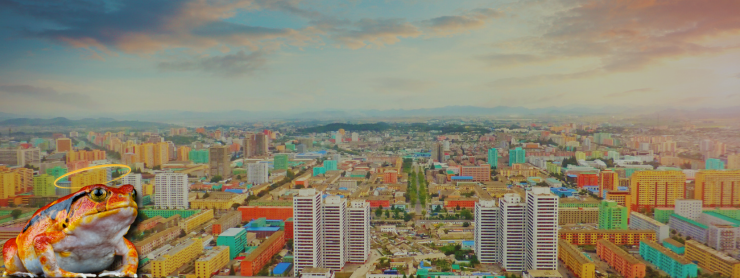
All Frogs Go To Heaven
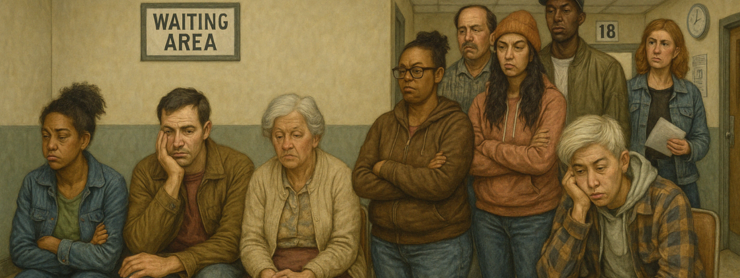
Why Does the DMV Suck?
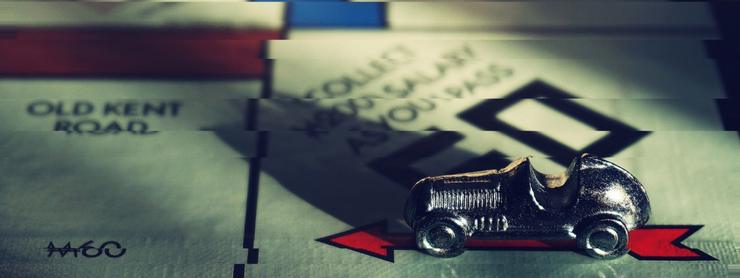
Your Money or Your Life
